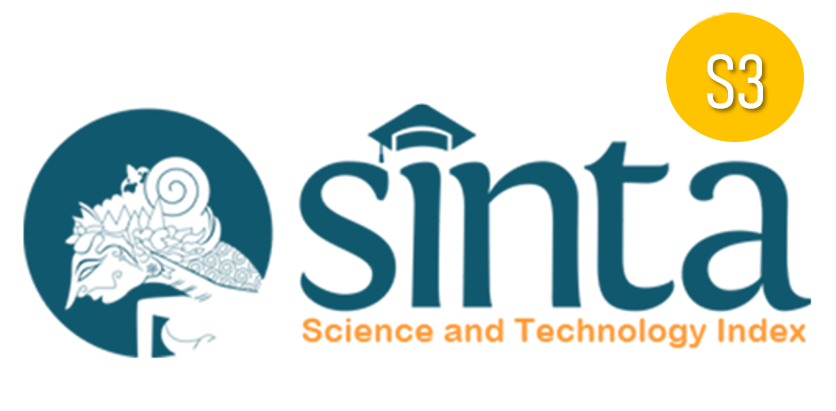Enhancing Student Cognition in Science Lessons Through Augmented Reality (AR) and Discovery Learning
Abstract
The rapid evolution of information technology has challenged educational institutions to adopt innovative pedagogies. Augmented Reality (AR), which enables interactive visualization through mobile devices, offers promising opportunities for science education. This study investigates the impact of AR integrated with the Discovery Learning model in improving junior high school students’ cognitive understanding of solar system concepts. Utilizing a Research and Development (R&D) approach and the ADDIE model, AR-based learning media were developed and implemented with 30 Grade-7 students. The average pretest score increased on the posttest, yielding a good and moderate category. Student responses indicated strong engagement and satisfaction. The findings suggested that AR combined with discovery-based instruction significantly enhances conceptual understanding and motivation. This study contributes to advancing educational technology practices and supports Sustainable Development Goal 4 (Quality Education) by promoting interactive and inclusive science learning experiences.
Keywords
Full Text:
PDFReferences
Acosta, L. D. (2020). Capacidad de respuesta frente a la pandemia de COVID-19 en América Latina y el Caribe. Revista Panamericana de Salud Pública, 44, e109.
Camilon, K.F., Dupitas, J.E.A., Cajandig, A.M.C., Cuba, B.A.A., Valdez, A.G., Abelito, J.T., and Marcella, A.M.A. (2025). Perceptions of senior high school science, technology, engineering, and mathematics (STEM) students toward STEM and non-STEM courses: A comparative qualitative study. ASEAN Journal for Science Education, 4(2), 105-112.
Chang, C. Y., Chena, C. L. D., and Chang, W. K. (2019). Research on immersion for learning using virtual reality, augmented reality and mixed reality. Enfance, 3(3), 413-426. 413.
Eryanto, D. R. D., and Prestiliano, J. (2017). Design of learning media for the solar system lesson using animation and virtual reality. Open Science Journal, 2(1), 1-13.
Fitrianti, A., Suwarma, I.R., and Kaniawati, I. (2024). Improvement of students' literacies skills in the knowledge aspect through science, technology, engineering, and mathematics (STEM)-integrated module. Indonesian Journal of Teaching in Science, 4(1), 41-46.
Holt, S. (2023). Virtual reality, augmented reality and mixed reality: For astronaut mental health; and space tourism, education and outreach. Acta Astronautica, 203, 436-446.
Jones, E., Leask, B., Brandenburg, U., and De Wit, H. (2021). Global social responsibility and the internationalisation of higher education for society. Journal of Studies in International Education, 25(4), 330-347.
Kohlhase, M., Corneli, J., David, C., Ginev, D., Jucovschi, C., Kohlhase, A., and Zholudev, V. (2011). The planetary system: Web 3.0 & active documents for STEM. Procedia Computer Science, 4, 598-607.
Koparan, T., Dinar, H., Koparan, E. T., and Haldan, Z. S. (2023). Integrating augmented reality into mathematics teaching and learning and examining its effectiveness. Thinking Skills and Creativity, 47, 101245.
Ming, S.K.H., Chongo, S., and Lapawi, N. (2023). Using scratch to increase students’ achievement and motivation toward solar system. In the 9th International Conference on Business Studies and Education, 44, 58-144.
Murphy, L., Eduljee, N. B., and Croteau, K. (2021). Teacher-centered versus student-centered teaching: Preferences and differences across academic majors. Journal of Effective teaching in Higher education, 4(1), 18-39.
Paudel, P. (2021). Online education: Benefits, challenges and strategies during and after covid-19 in higher education. International Journal on Studies in Education, 3(2), 70-85.
Rahmatullah, R., Bahtiar, B., and Maimun, M. (2023). Development of contextual physics teaching materials assisted by virtual lab based-android as alternative learning in covid-19 pandemic. Jurnal Penelitian Pendidikan IPA, 9(5), 4015-4021.
Rahmi, N.A., Syahmani, S., Mahardika, A.I., Suyidno, S., and Suwandy, F.I. (2025). Trends in information and communication technology (ICT)-based science, technology, engineering, and mathematics (STEM) teaching materials development in science learning in Indonesia: A systematic literature review. Indonesian Journal of Multidiciplinary Research, 5(1), 115-132.
Sahin, D., and Yilmaz, R. M. (2020). The effect of Augmented Reality Technology on middle school students' achievements and attitudes towards science education. Computers and Education, 144, 103710.
Sawu, M. R. F., Sukarso, A. A., Lestari, T. A., and Handayani, B. S. (2023). The effect of STEM learning in building creative dispositions and creative thinking skills of junior high school students. Jurnal Penelitian Pendidikan IPA, 9(8), 6219-6229.
Solihah, P.A., Kaniawati, I., Samsudin, A., and Riandi, R. (2024). Prototype of greenhouse effect for improving problem-solving skills in science, technology, engineering, and mathematics (STEM)-education for sustainable development (ESD): Literature review, bibliometric, and experiment. Indonesian Journal of Science and Technology, 9(1), 163-190.
Willemsen, R. H., de Vink, I. C., Kroesbergen, E. H., and Lazonder, A. W. (2024). Strengthening creative problem‐solving within upper‐elementary science education. The Journal of Creative Behavior, 58(1), 137-150.
Zhang, Y., Feijoo-Garcia, M. A., Gu, Y., Popescu, V., Benes, B., and Magana, A. J. (2024). Virtual and augmented reality in science, technology, engineering, and mathematics (STEM) education: An umbrella review. Information, 15(9), 515-540.
DOI: https://doi.org/10.17509/ijert.v6i1.88054
Refbacks
- There are currently no refbacks.
Copyright (c) 2025 Universitas Pendidikan Indonesia (UPI)

This work is licensed under a Creative Commons Attribution-ShareAlike 4.0 International License.







.png)




